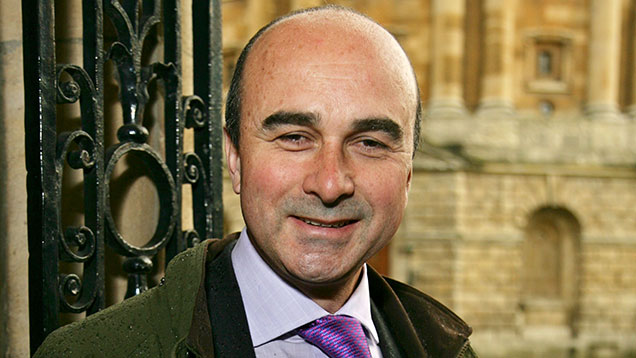Intensive agriculture best way to feed world, say Oxford delegates
 Philip Lymbery. © Rex Features
Philip Lymbery. © Rex Features Delegates at the Oxford Farming Conference have rejected a motion that intensive agriculture is no longer sustainable.
The motion – proposed by Compassion in World Farming chief executive Philip Lymbery – was defeated by 269 votes to 81 following an Oxford Union debate.
Intensive agriculture was not sustainable because it eroded the bedrock farming relied on for future years – including soil, water and the environment, said Mr Lymbery.
See also: Truss outlines ‘world-leading’ vision for farming
Farmland birds were declining, bee populations were falling and so too were populations of butterflies and wildflowers – all aspects of the ecosystem upon which we depended.
Feeding animals grain instead of grass was a more water-intensive way of rearing livestock than pasture-based farming, said Mr Lymbery.
It was “shameful” that so much grain was fed to livestock when it could be better used instead to feed 4bn people, he added.
“The big problem is not about the need to produce more, it is about stopping food waste.”
Increasing production by intensification was like pouring water into a leaky bucket and then trying to carry it up the road, said Mr Lymbery.
“Intensive agriculture no longer sustainable, no longer efficient and no longer necessary.”
The motion was opposed by Caroline Drummond, chief executive of the Linking Environment and Farming (Leaf) charity.
Sustainable intensification of agriculture was the only way to produce more food, she said.
“To cease producing more would be morally wrong.” Caroline Drummond, Leaf chief executive
Intensification didn’t mean more cows in the barn – it meant intensifying all aspects of agriculture to feed a growing world population, said Ms Drummond.
“We need to produce more food,” she told listeners. “To cease producing more would be morally wrong.”
Failure to produce more food alongside reducing waste would force people to go hungry in other parts of the world.
Debates at the Oxford Farming Conference encourage participation from members of the National Federation of Young Farmers’ Clubs, who act as seconders to the main speakers.
Young farmer Charlotte Johnston, who was Mr Lymbery’s seconder, said a focus on increasing yields was coming at the expense of the environment and consumers.
Innovative production techniques were needed to produce food in a more sustainable manner, rather than intensifying agriculture, she said.
Chris Manley, who was Ms Drummond’s seconder, said sustainably intensive agriculture played a crucial part in reducing food waste.
It was ludicrous to think farmers wanted to damage the environment because doing so would reduce their potential to produce food, he said.
